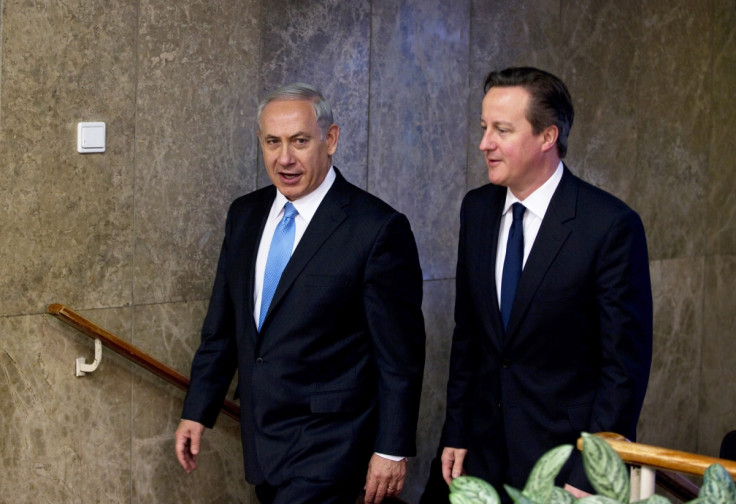Israel Enjoys Record Exports to the UK Despite Palestinian Boycott Movement

Despite the latest Gaza War, bilateral trade between Israel and the UK rose by 28% between January and August, reaching record levels.
Israeli exports to the UK were up by 38% over the first eight months of the year, reaching £1.6bn in volume.
This is despite a long and prominent campaign by the Boycott, Divest and Sanctions movement to pile economic and political pressure on western governments to sanction Israeli goods.
The UK, Israel's second export market after the US, sent £957m worth of goods to Israel over the same period, according to the Central Bureau of Statistics.
The Israeli business community has unsurprisingly welcomed the news. The Minister of Economy and Trade Nathan Tsror told the Jewish Chronicle: "Once again, the latest trade figures underline the strong business ties that exist between Israel and the UK. This relationship brings great benefit to both countries and as such is of great value.
The news has been criticised by the Palestine Solidarity Campaign (PSC), which has led calls for a boycott of Israeli goods.
Campaigns Director Sarah Colborne told IBTimes UK: "The UK government's priority should not be trade with Israel, but rather the application of pressure on the Israeli government to comply with international law in its treatment of the Palestinians. Over 50 days in July and August, Israel killed more than 2,000 Palestinians in Gaza, 500 of them children. The assault on Gaza was an assault on a population which Israel has held under siege for seven years, and under occupation for more than four decades.
"Palestine Solidarity Campaign is calling on the UK government to implement an immediate arms embargo on Israel and an end to the two-way arms trade between the UK and Israel. Until Israel can comply with international law, we call for boycott, divestment and sanctions, not increased trade."
In an exclusive interview with IBTimes UK in August, the chairman of the PSC Hugh Lanning said he thought there was growing support in Britain's political circles for a boycott on Israeli goods.
In the same month, a Downing Street spokesperson said that the government was considering suspending the sales of munitions to Israel by British companies, as the Gaza conflict waged on. The UK has approved almost £50m in arms sales to Israel since 2010, according to the Campaign Against Arms Trade (CAAT)
"In the past all the mainstream parties wouldn't countenance any discussions. The Labour Party of which I'm a member was very keen to not be associated with anything that said boycott. The glass ceiling has been broken with talk of the arms embargo and military trade," Lanning said.
The BDS launched high-profile boycotts against the likes of G4S, Garnier and SodaStream, all of which had business operations which could be linked with the Occupied Palestinian Territories.
It will be interesting to see if Israel can repeat the performance over the back four months of 2014. On 1 September, an EU ban on products manufactured in the Occupied Territories came into place.
There has been some divergence in opinion across Europe as to what the bloc's trading relationship with Israel should be, as the eight-year blockade of Gaza continues.
In September, the Danish Foreign Minister Martin Lidegaard urged the EU to adopt sanctions should peace talks in Cairo fail to deliver a resolution over the blockade.
Speaking to Danish newspaper Jyllands Posten – the publication which infamously ran the cartoons depicting the Islamic prophet Muhammad in 2005 – Lidegaard said: "If nothing happens in the peace talks this time, and if we do not see a new pattern of response by Israel, we are going to discuss the possibility of new steps, including changes in our trade relations with Israel. I wish that it did not get there, but I think that the EU policy [should go] in this direction."
However, in her European Parliamentary hearing on 29 September, Cecilia Malmström, the Commissioner-designate for Trade said the EU was not planning to introduce any sanctions on Israel, in addition to the ban on the import of goods made in the Occupied Palestinian Territories. However, there were no plans to draw up further trade agreements with Israel either.
In a series of exclusive IBTimes UK reports to have been published, it was abundantly apparent that despite the strong exports performance, Israel's tourism sector has suffered greatly due to the Gaza War.
© Copyright IBTimes 2024. All rights reserved.






















